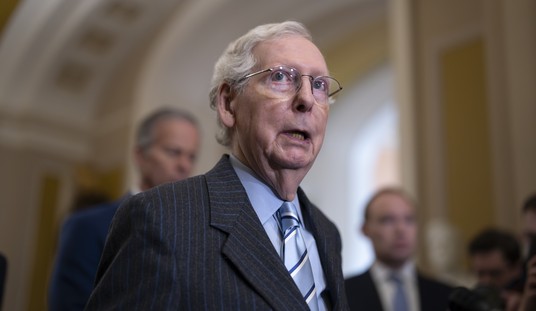I first met Rush Limbaugh 25 years ago at his New York radio headquarters. His national show was in its seventh year of blowing liberals’ heads apart, and my local show aired immediately before it on the Dallas-Ft. Worth station. We took a planeload of listeners to visit a taping of his mid-nineties syndicated TV show, which gave me the opportunity to broadcast back to Texas from a studio steps away from the room that held the “Golden EIB (Excellence in Broadcasting) Microphone.”
He joined me one morning for a brief segment for the local listeners, then invited me to his office for a few minutes of small talk that began with a curious question: “Do you consume adult beverages?” I paused to evaluate whether a glass of wine a week merited a yes. “Sometimes,” I said, only to learn that it was an entry question to the offer he was about to make—a cigar that cost God-knows-what.
I brought it home and smoked it on the patio. I knocked down a few more cigars in the years to follow, but none as memorable.
In 2006, Rush came to Texas for a personal appearance I was honored to host. As he regaled the audience with political wit and wisdom, one of his executive folks asked me backstage if I had any interest in filling in for him as a substitute host. In early 2008, I began four years of occasionally finishing my own show, hitting a few buttons and swinging directly into his.
This put me in close touch with the people who surround him every day: Producer James Golden (the beloved “Bo Snerdley”), Engineer Mike Maimone, and Chief of Staff “Kit” Carson. Their love of radio was as apparent as their devotion to Rush. When Kit died of brain cancer in 2015, it was like a death in the family for these devoted people I had come to know.
Recommended
On Monday, it was Rush himself who devoted the closing moments of his show to reveal the cancer challenge he now faces.
“I wish I didn't have to tell you this,” he shared after divulging his advanced stage of lung cancer. “I thought about not telling anybody. I thought about trying do this without anybody knowing because I don't like making things about me. But there are going to be days when I'm not going to be here because I'm undergoing treatment or I'm reacting to treatment.”
So begins the path that will dictate how long talk radio’s most dominant voice will be with us. Social media instantly filled with prayers for a fast recovery. Those same corridors also filled with predictable waves of hatred. Such is life in 2020.
For his part, Rush has worn the decades of attacks from the left like a badge of honor. “It’s how I know I’m right,” he would say of the shrill reactions he would often attract.
I refuse to adopt the tone of an obituary. I join millions in asking God for healing for this man who has meant so much to our nation, to my industry and to me. But it is an appropriate time to take stock of what he has done, and we hope he will be able to continue doing.
The word “pioneer” comes to mind, but it might not apply. America’s biggest cities spawned embryonic talk shows in the 1950s, with trailblazers like Joe Pyne and Bob Grant joining others in growing the format into the ‘60s. By the end of the ‘70s, Larry King had proven that a talk show could get ratings even in the desert of overnight.
There was music before the Beatles, and there was talk radio before Rush Limbaugh. I was part of it, as a show landed in my thoroughly unprepared lap in 1982 in Jacksonville, Florida. At my next stop in Memphis, a ripple of buzz in 1988 became a tidal wave of fame as the nineties began. It was Rush who brought enormous attention to talk radio on stations large and small, in big cities and small towns. His popularity showed radio owners and managers that talk shows could be profitable at a time when AM stations were dying on the vine as the last music listeners left for the FM dial. He thus created countless careers that never would have started, and paved the way for others that might not have gone nearly as far.
Today, all of radio is in flux. Satellite channels, podcasts and worldwide online listening have created special challenges for stations seeking to attract audiences in a complex environment. But Rush Limbaugh has persevered, and no one has equaled his impact.
Critics thought he was made famous by the Clinton years-- that his appeal would wane once Bill and Hillary were no longer around to provide content. The 20 years since their departure from the White House has yielded proof that upbeat conservatism delivered with skill and humor would always be a force.
I will often share radio stories at speaking engagements, and one of my favorite eyebrow-raisers is when I reveal that Rush Limbaugh is not a big deal because he is conservative. There are conservatives I respect that I have no desire to hear on the radio for 30 minutes, much less the 32 years Rush has been on our radios.
Rush is what he is because he is a radio guy—a storyteller, a polemicist, a provocateur, a stand-up comedian, a commentator, an evangelist, an unmatched analyst and a gracious and welcoming host to all who listen.
And he makes his gratitude clear to those listeners every day. Today it is our turn to take a measure of the gratitude we feel for him, and use that as the motivation for prayers that we may be able to enjoy his gift for many, many years to come.


